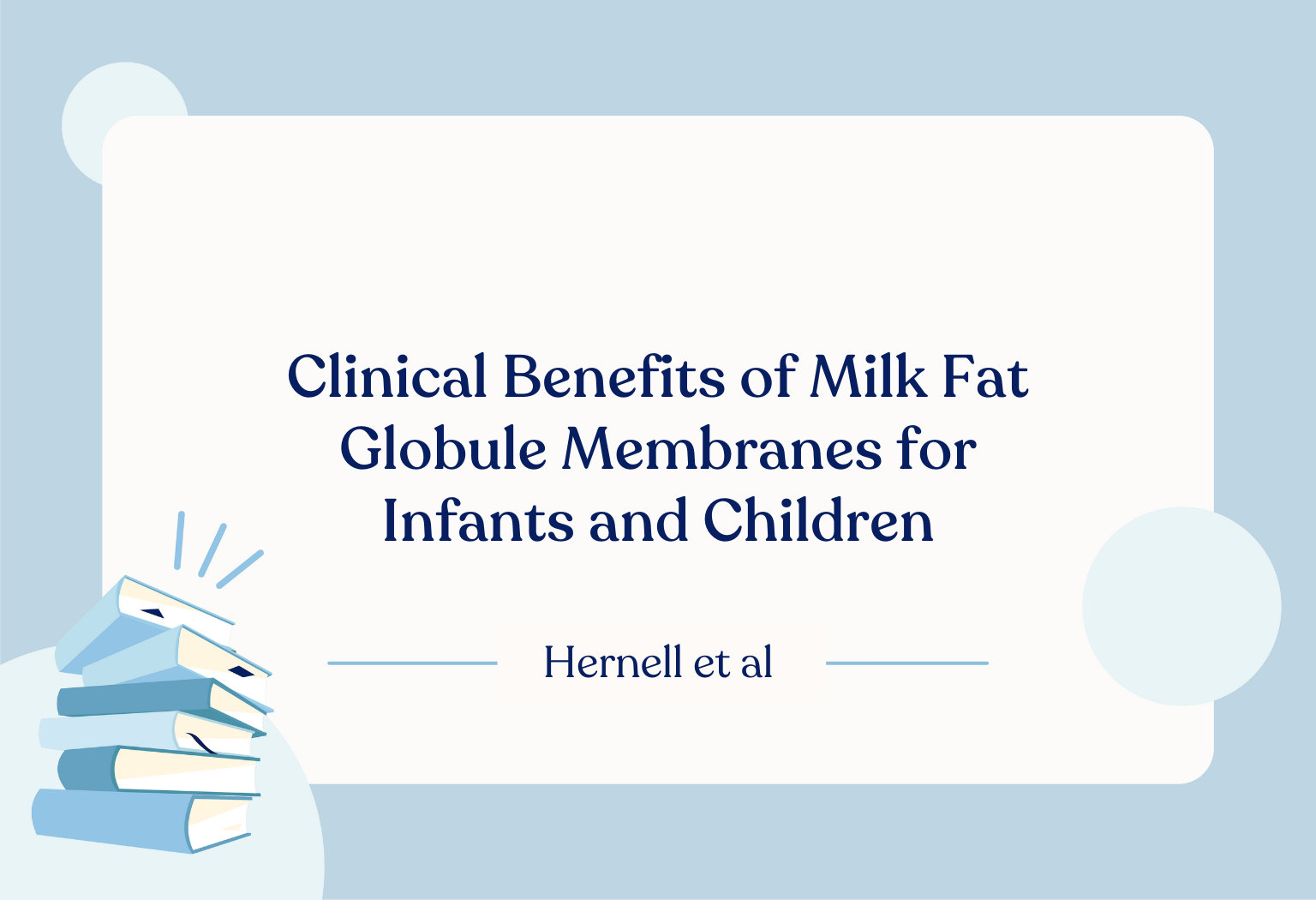Read more about the role of MFGM here
References
- Shaw GM, Carmichael SL, Yang W, Selvin S, Schaffer DM. Periconceptional dietary intake of choline and betaine and neural tube defects in offspring. American journal of epidemiology. 2004 Jul 15;160(2):102-9.
- Wu BT, Dyer RA, King DJ, Richardson KJ, Innis SM. Early second trimester maternal plasma choline and betaine are related to measures of early cognitive development in term infants.
- Tanaka K, Hosozawa M, Kudo N, Yoshikawa N, Hisata K, Shoji H, Shinohara K, Shimizu T. The pilot study: sphingomyelin-fortified milk has a positive association with the neurobehavioural development of very low birth weight infants during infancy, randomized control trial. Brain and Development. 2013 Jan 1;35(1):45-52.
- FOMON SJ, BARTELS DJ. Concentrations of cholesterol in serum of infants in relation to diet. AMA Journal of Diseases of Children. 1960 Jan 1;99(1):27-30.
- Spitsberg VL. Invited review: Bovine milk fat globule membrane as a potential nutraceutical. Journal of dairy science. 2005 Jul 1;88(7):2289-94.
- Zavaleta N, Kvistgaard AS, Graverholt G, Respicio G, Guija H, Valencia N, Lönnerdal B. Efficacy of an MFGM-enriched complementary food in diarrhea, anemia, and micronutrient status in infants. Journal of pediatric gastroenterology and nutrition. 2011 Nov 1;53(5):561-8.
- Gurnida DA, Rowan AM, Idjradinata P, Muchtadi D, Sekarwana N. Association of complex lipids containing gangliosides with cognitive development of 6-month-old infants. Early human development. 2012 Aug 1;88(8):595-601.
- Poppitt SD, McGregor RA, Wiessing KR, Goyal VK, Chitkara AJ, Gupta S, Palmano K, Kuhn-Sherlock B, McConnell MA. Bovine complex milk lipid containing gangliosides for prevention of rotavirus infection and diarrhoea in northern Indian infants. Journal of pediatric gastroenterology and nutrition. 2014 Aug 1;59(2):167-71.
- Timby N, Domellöf E, Hernell O, Lönnerdal B, Domellöf M. Neurodevelopment, nutrition, and growth until 12 mo of age in infants fed a low-energy, low-protein formula supplemented with bovine milk fat globule membranes: a randomized controlled trial. The American journal of clinical nutrition. 2014 Apr 1;99(4):860-8.
- Billeaud C, Puccio G, Saliba E, Guillois B, Vaysse C, Pecquet S, Steenhout P. Safety and tolerance evaluation of milk fat globule membrane-enriched infant formulas: a randomized controlled multicenter non-inferiority trial in healthy term infants. Clinical Medicine Insights: Pediatrics. 2014 Jan;8:CMPed-S16962.

